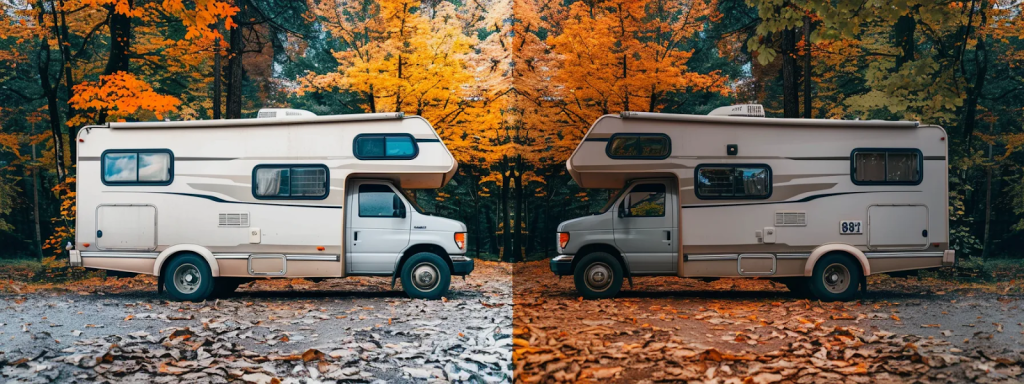
When setting out on the open road in an RV, the last thing you want is for unexpected repairs to derail your adventure. An RV extended warranty can provide peace of mind, covering the costs of mechanical breakdowns beyond the manufacturer’s warranty. However, the RV extended warranty cost is influenced by a variety of factors, such as the RV’s make, model, age, mileage, and the coverage options you select. Understanding these factors can help you make an informed decision tailored to your needs. Below, we explore the intricacies of RV warranties, ensuring you’re better equipped when considering such an investment.
The Role of RV Make, Model, and Age in Warranty Pricing
The make and model of your RV are primary factors that influence extended warranty pricing. Luxury and custom models often come with a steeper RV extended warranty cost due to their higher repair expenses. These vehicles may utilize specialized parts or require services from certified technicians, increasing the risk for warranty providers and, consequently, the price of coverage.
Similarly, the age of your RV has a direct correlation with warranty cost. Older RVs tend to have more wear and tear, leading to a higher likelihood of mechanical failure. Warranty providers account for this increased risk by charging more for older models. It is essential to weigh the cost against the benefits, as warranties for older RVs can sometimes approach the value of the vehicle itself.
Most extended warranty strategies involve a tiered pricing system for different age groups of RVs. For example, RVs less than 5 years old typically fall within the lowest pricing tier, while those over 10 years old may require an extensive review and higher prices. This system accommodates the natural decline in reliability with age.
How Mileage and Usage Affect Extended Warranty Costs for RVs
Similar to automobiles, mileage is a significant factor in determining the cost of an RV extended warranty. Higher mileages imply more usage, which can be indicative of a greater chance of mechanical breakdowns. Warranties will generally be more expensive for high-mileage RVs as the risk to the warranty provider increases.
How you use your RV also plays into warranty pricing. For full-time RVers, the wear and tear on a vehicle is significantly greater than for someone who uses their RV occasionally for vacation. Full-time usage can lead to heightened warranty costs due to the continuous strain on the RV’s systems and components. Some warranty providers might offer specific plans catered to the needs of full-time RVers to address this heightened level of risk.
Nevertheless, don’t let high usage deter you from considering a warranty. Even with the additional cost, the protection against significant repair bills can outweigh premium expenses, especially if you depend on your RV for your lifestyle or livelihood.
Examining the Coverage Options: What Affects Your RV Warranty Price?

Choosing the right coverage for your RV warranty is crucial in ensuring you are not overpaying for unnecessary services. Options range from basic powertrain coverage to full coach policies that encompass almost every system within your RV. Each incremental increase in coverage typically leads to a corresponding rise in warranty price.
Electing for additional benefits, such as roadside assistance, towing, trip interruption, or tire protection, can affect the cost as well. These perks can be invaluable in an emergency, but do come at a price. It’s important to realistically assess your needs and risks to determine whether such extras are worthwhile for your situation.
Negotiating the Best Price for Your RV Extended Warranty: Essential Tips
Once you’re armed with knowledge about the factors influencing RV warranty costs, you can begin to negotiate for the best possible price. Start by comparing quotes from multiple providers to understand the range of prices for the coverage you desire. Remember, the lowest price isn’t always the best choice if it compromises on coverage or service quality.
Don’t be afraid to ask questions or request modifications to a warranty plan. Providers may offer flexible terms or discounts that aren’t advertised publicly. Moreover, demonstrating your RV has been well-maintained and presenting service records can show a reduced risk, which may help lower your warranty cost.
Overall, the RV extended warranty cost is influenced by a diverse set of factors, and understanding these can help you secure the right coverage at a fair price. Knowledge is power when it comes to negotiating the complexities of RV warranties. By considering the make, model, age, mileage, usage, and different coverage options, you can ensure you’re not overpaying for an extended warranty. Making an educated decision will safeguard your RV and your finances, allowing you to enjoy your journeys with confidence.












